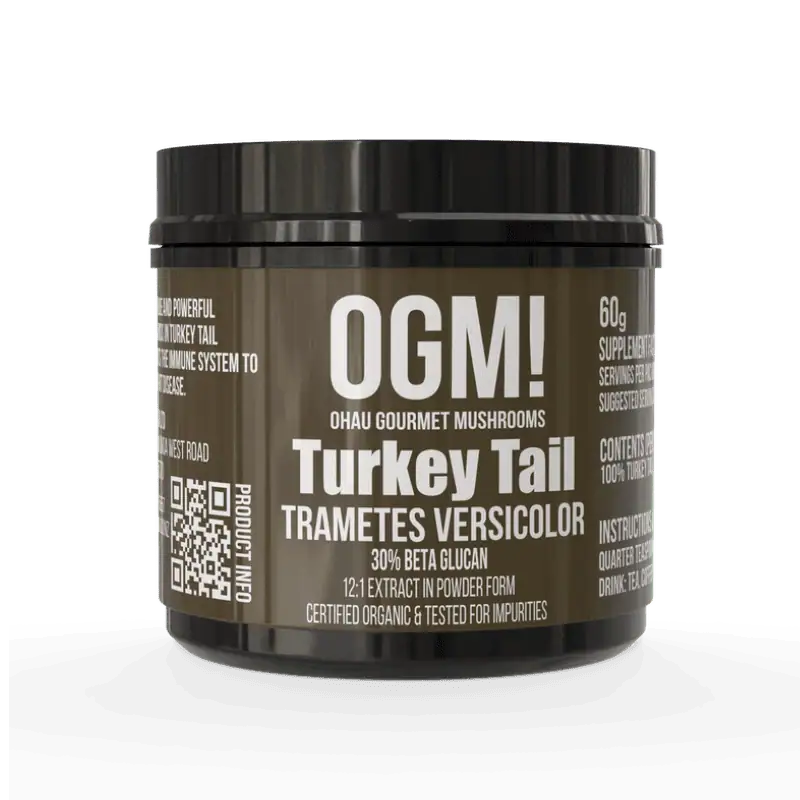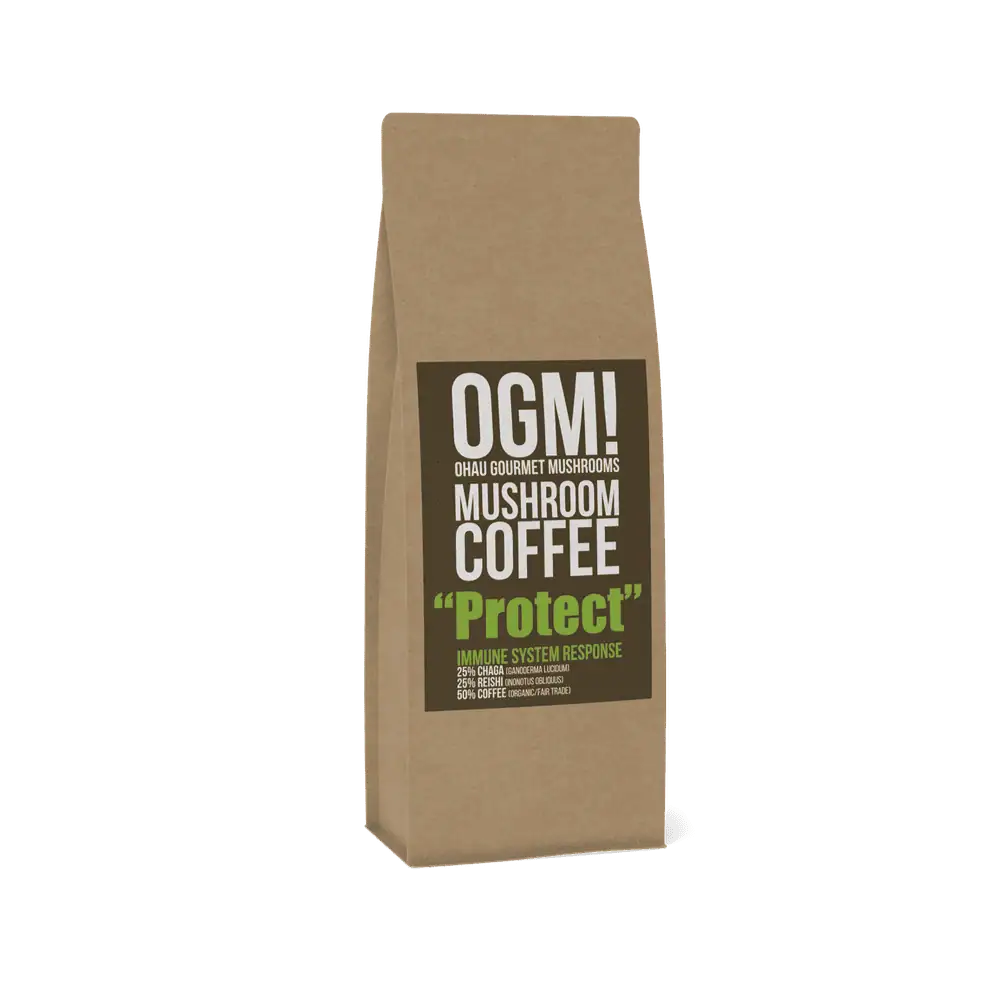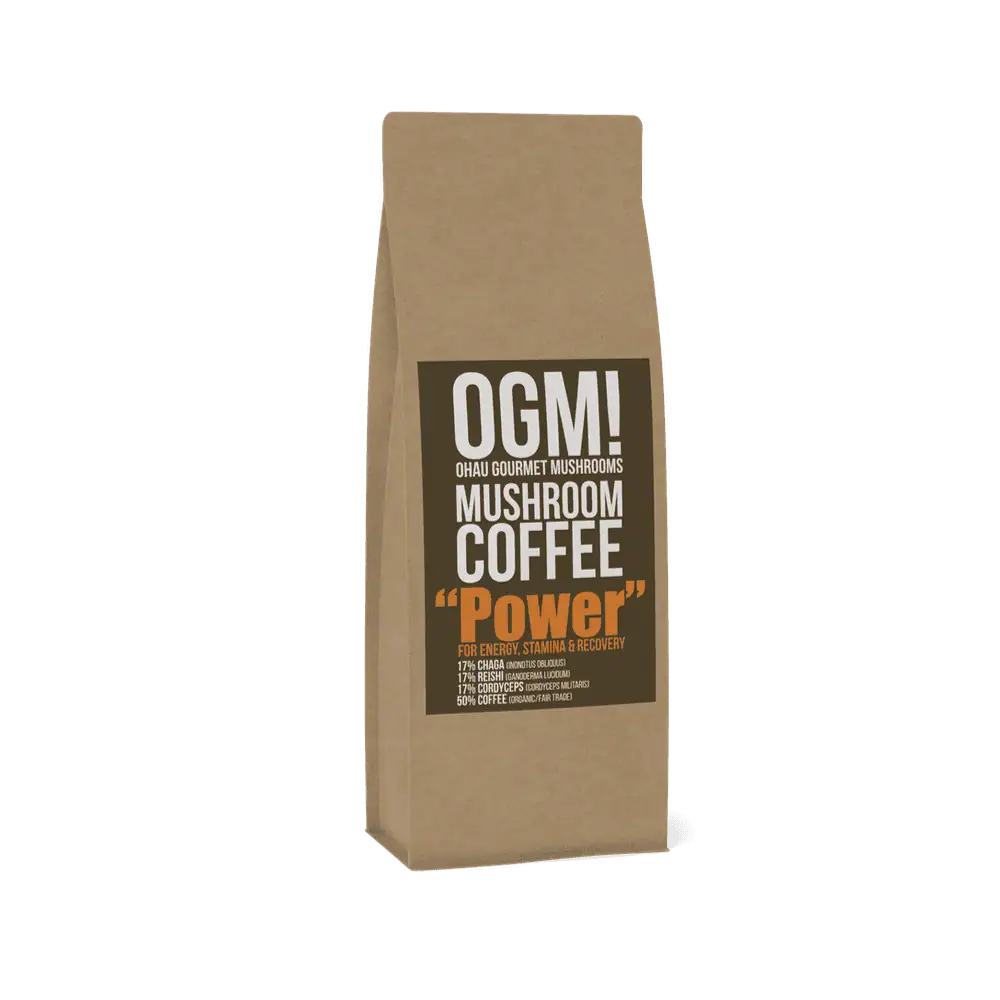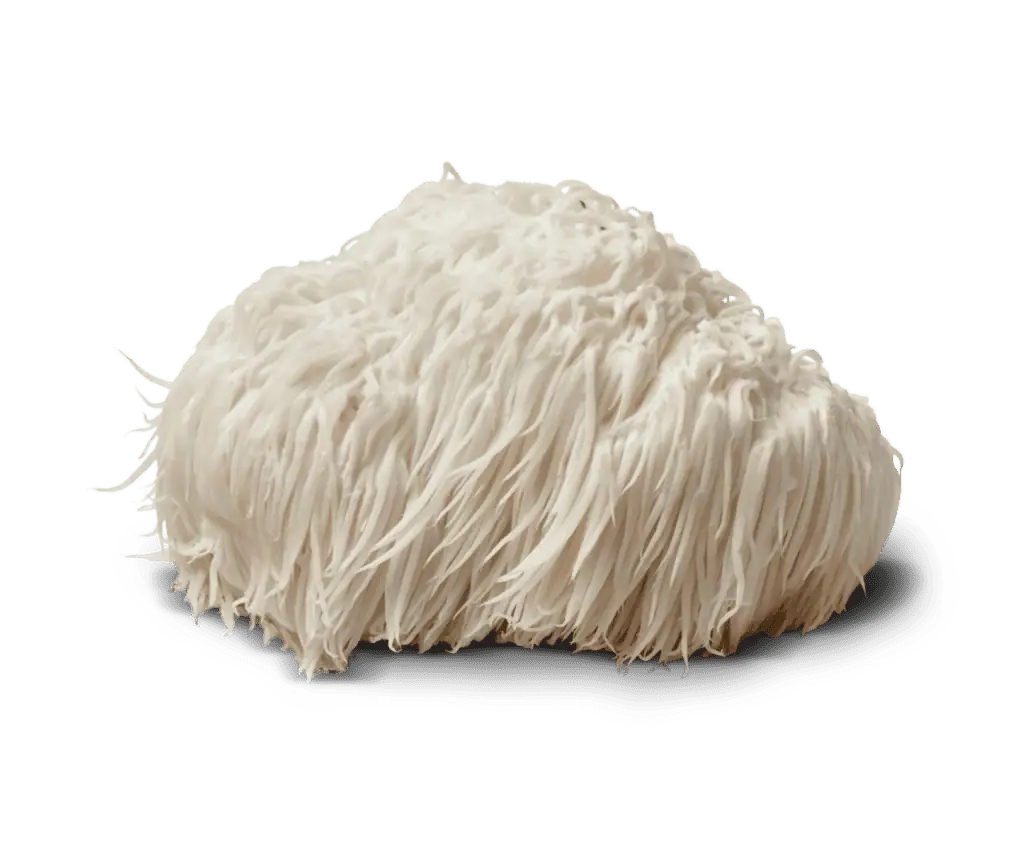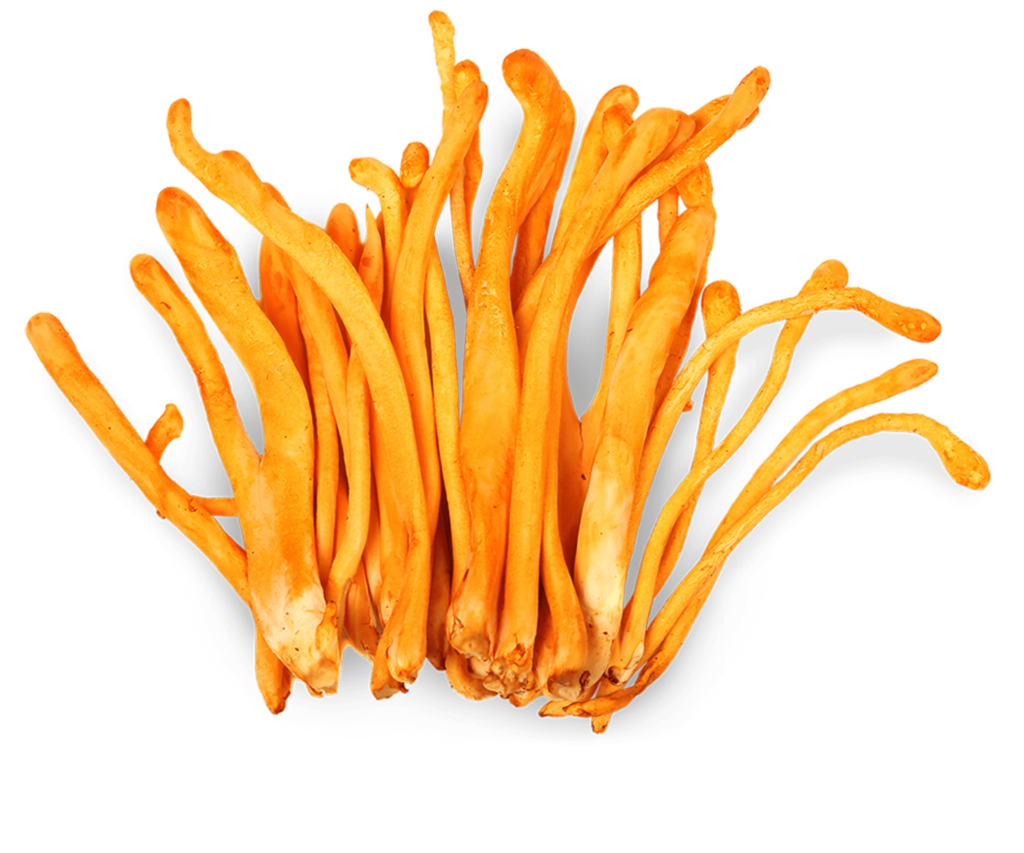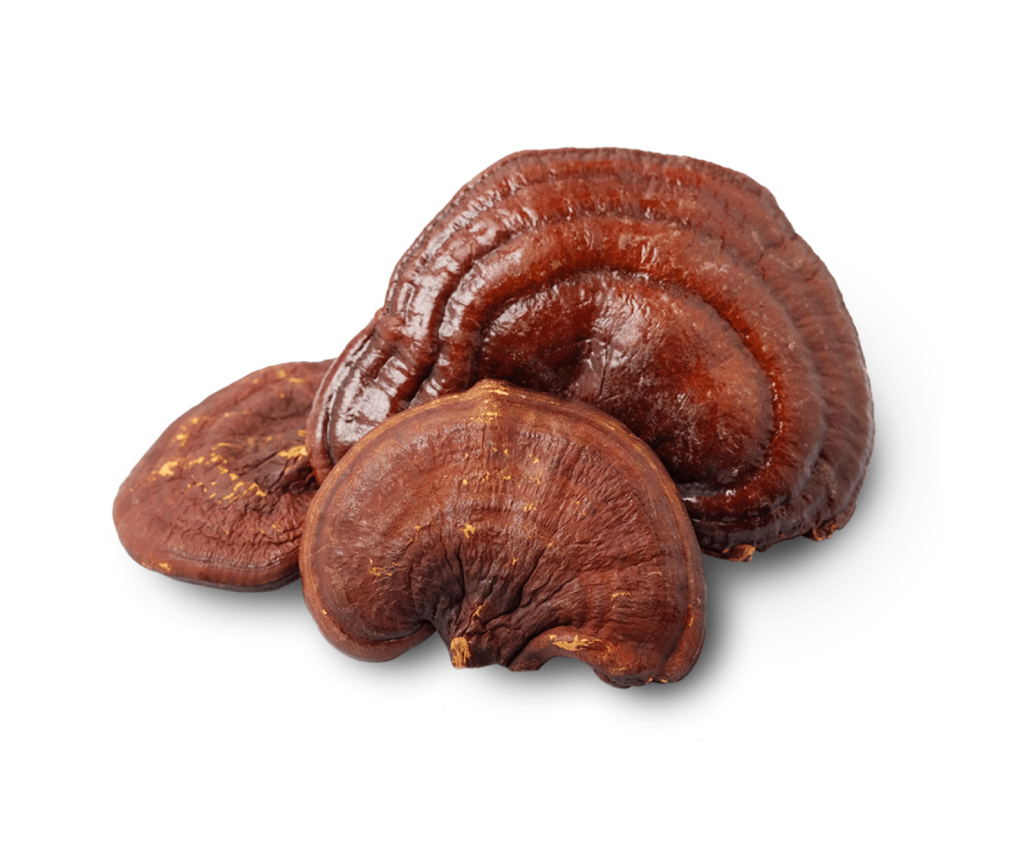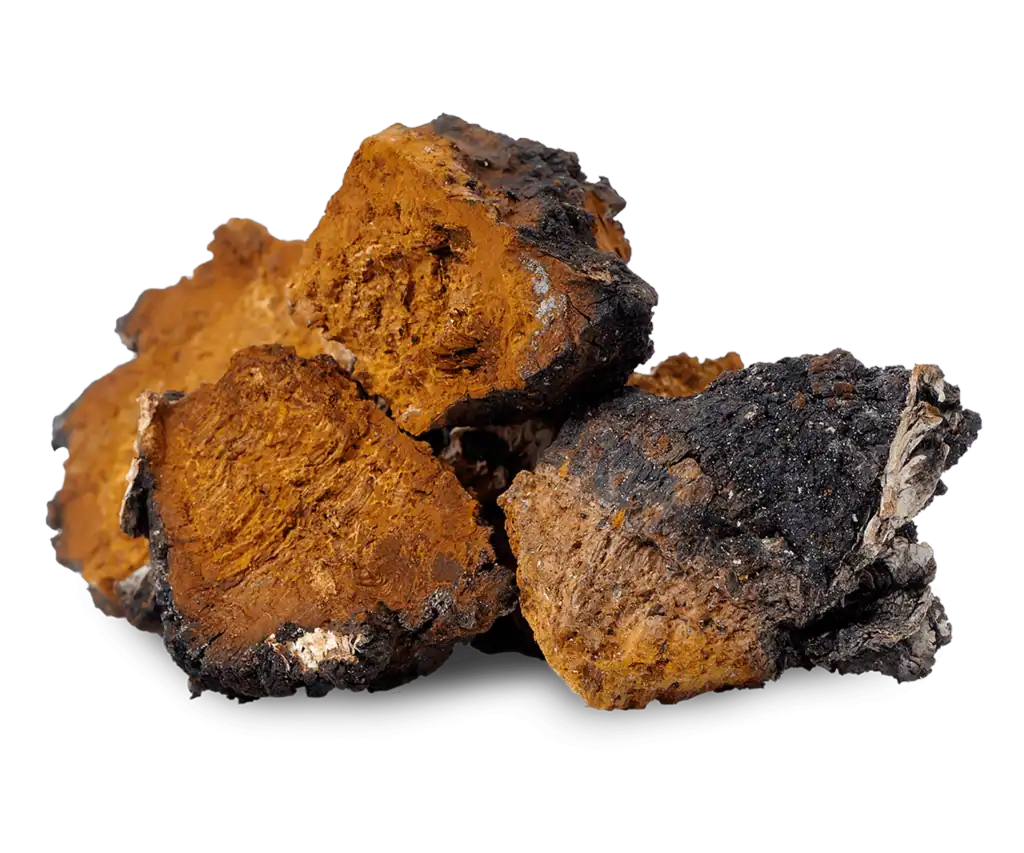Turkey Tail Dosage
- Maintenance dosage: 1000 to 1500mg daily to maintain optimal immune system health.
- Targeted dose: 2000 to 4000mg daily if you are unwell and targeting a specific illness.
However, the appropriate dose depends on various factors, such as your:
- Health
- Age
- Wellness goals
We recommend starting with a 500mg dose of Turkey Tail and increasing slowly over time based on how it makes you feel. Do this by taking an additional 500mg dose over the course of the day.
How does Turkey Tail work?
Turkey tail mushrooms contain compounds that support the body’s healing and repair abilities by fostering healthy cellular activity, balancing the immune system, and regulating inflammation responses.
Some of the active components of Turkey Tail include:
- Trametenolic acid: This substance has been found to suppress the development of several types of malignant cells. It also helps the body maintain a healthy inflammatory response.
- Phenols: The phenolic chemicals, flavonoids and phenolic acids, which have antioxidant characteristics, are also present in turkey tail mushrooms and help the body maintain cellular health and a balanced inflammatory response.
- Many of its naturally occurring compounds are biomodulators. Biomodulators can regulate and modify the immune system and other biological functions in the body.
Turkey Tail mushroom benefits
- Immune System Support: Turkey tail mushrooms contain compounds like polysaccharide peptide (PSP) and polysaccharide krestin (PSK) that can stimulate immune cells and enhance the body's ability to fight infections, including viruses and bacteria
- Potential Cancer Support: Some studies suggest that PSK and PSP in turkey tail may help inhibit the growth of cancer cells, especially in certain types of cancer.
- Human Papilloma Virus (HPV): According to a study of 61 patients with gum disease testing positive for oral HPV, 88% of the 41 patients who received both turkey tail and reishi mushrooms showed positive results after only two months of treatment.
Cognitive function: High in antioxidants, turkey tail mushroom may boost cognitive function and lower the risk of age-related cognitive decline.
Turkey Tail Safety
Turkey Tail extracts are generally well tolerated, with few reported side effects.
- Diabetes: Turkey Tail may also affect blood glucose levels, so monitor your blood sugar levels while using it.
- Cancer treatment: Turkey Tail may negatively interact with some cancer drugs & chemotherapy. Please consult your doctor.
Before starting any supplement, it’s advisable to consult a qualified healthcare professional.
Cancer Research.
The following information is provided for educational purposes only and should not be considered a substitute for professional medical advice.
Several studies have shown that turkey tail mushrooms possess immune-boosting properties that may offer benefits to individuals undergoing cancer treatment.
Turkey tail mushrooms contain compounds called polysaccharopeptide (PSP) and polysaccharide-K (PSK). Some evidence suggests that PSP may have the ability to stimulate the immune system, particularly when combined with other anticancer treatments.
In Japan, PSK is an approved adjuvant cancer treatment, as confirmed by the National Cancer Institute. However, the Food and Drug Administration (FDA) has not approved the product as a medication in the United States.
Colon cancer
A 2019 laboratory study suggests that PSP from turkey tail extract may inhibit colon cancer cell growth and prevent colon cancer cells from migrating and invading healthy cells. A 2023 review of past research further supports this finding, indicating that PSK from turkey tail mushrooms may help reduce the side effects of oral chemotherapy regimens for colorectal cancer. Notably, those taking a combination of uracil and tegafur with PSK reported better quality of life compared to those taking uracil, tegafur, and leucovorin.
A systematic review and meta-analysis concluded that PSK is a safe and effective supplement for individuals with gastrointestinal cancer. The authors of the review also suggested that PSK may lead to improved survival rates in such patients.
Gastric cancer
A 2023 review also examined research on the use of turkey tail extract for gastric cancer. It included four studies suggesting that PSK may prolong overall survival times, with few results contradicting this. PSK showed the most effect in individuals with tumours that lacked programmed death-1 ligand 1 (PD-L1). These tumours typically do not respond well to immunotherapy.
Breast cancer
While research on turkey tail extract’s potential to aid in breast cancer treatment is limited, a small phase 1 clinical trial involving nine participants with stage 1, 2, or 3 breast cancer provided some promising results. These participants underwent standard chemotherapy and radiation treatments and were then administered 3, 6, or 9 grams of turkey tail extract in divided doses daily for six weeks. The researchers observed that the extract contributed to an increase in cancer-fighting cells within the immune system. However, it’s important to note that this study had a small sample size, and further clinical trials involving larger participant numbers are necessary to draw definitive conclusions.
Cancer in dogs
There has also been some exciting research on using Turkey Tail in the treatment of cancer in dogs. The survival rates were such, that the researchers had to double check that they had not mistaken the dogs with cancer for the healthy control group.

